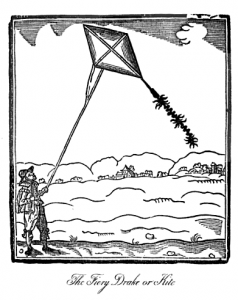Dozens of Registered Community Organizations (RCOs) across Philadelphia “have to provide their own liability insurance to protect their volunteer staffers, and all it takes is one or two lawsuits for premiums to reach untenable heights.” The lawsuits are readily forthcoming since a common role of RCOs is to submit comments on land use development proposals, high-stakes issue often leading to litigation. The Bella Vista Neighbors Association, involved in a lawsuit three years ago, was set to shut down just the other day when “a Utah-based carrier specializing in tough-to-insure entities — think fireworks, helicopter bungee jumps, and trampoline companies — stepped in, finalizing a plan hours before the meeting, which coincided with the last day of the association’s coverage.” [Julia Terruso, Philadelphia Daily News]
Posts Tagged ‘volunteers’
January 20 roundup
- Grand jury said to recommend charges against Pennsylvania Attorney General Kathleen Kane [Philadelphia Inquirer, more, earlier here and here]
- Orin Kerr analyzes Obama admininstration proposals to expand law on computer crime [Volokh Conspiracy and more]
- “Religious Liberty Isn’t a ‘Dog Whistle’ – It’s a Necessary Practice of a Free Society” [Scott Shackford, Reason vs. Frank Bruni, New York Times]
- Scalia, Epstein, many others: videos now online from the Federalist Society’s recently concluded 2014 National Lawyers Convention;
- List of firms with non-disparagement clauses (of highly dubious enforceability) purporting to forbid negative comments from customers [Tim Cushing, TechDirt]
- “Red Tape Is Strangling Good Samaritans” [Philip K. Howard, The Daily Beast]
- I’ve written on this irony: antitrust lawyers collude among themselves to boost their fee take [Daniel Fisher]
More thoughts on the Westover Winery case
…and the right to volunteer one’s labor (earlier), from frequent Overlawyered commenter Gitarcarver at his blog [Raised on Hoecakes]:
Volunteers serve in National Parks around the country without ever being paid for their labor.
Why does the government encourage people to labor without pay for some activities and not others? …
We think that volunteering is noble, rewarding and educational independent of whether the cause is “for profit” or not.
Our issue is not with volunteering.
The issue is what right does the government have in saying where a free citizen of this country can donate his or her time and efforts to?
If you have a friend who is starting a business and you want to help him succeed, why can’t you volunteer your time, efforts and expertise? If a neighbor wants to build and extension onto their offices and you donate a set of architectural or engineering plans because that is your area of expertise. what right does the government have to say “you can’t do that?” If you design web pages and do some work on a web page for a fellow parishioner at your church, what concern is that of the government? How many small businesses have “friends” who donate time to repair or maintain the business’ computers?
The bottom line is the application of the labor of a person is the individual’s choice – not the government’s.
P.S. Small though it was, Westover “produce[d] the greatest variety of ports in the United States,” reports Baylen Linnekin. More from Darleen Click at Protein Wisdom. And in our comments section a reader identifying himself as William Smyth, owner of Westover Winery, comments here.
Medical roundup
- “In a nationally representative sample, higher patient satisfaction was associated with…increased mortality.” [White Coat/BirdStrike]
- Low premiums! Few glitches! Larger states “working faithfully to implement the law with as few glitches as possible”! New Yorker’s Oct. 7 “Talk of the Town” on ACA’s smooth launch is a retrospective hoot;
- Massachusetts Nurses Association goes all Venezuelan on hospital governance [Ira Stoll]
- “Can a healthcare provider make an arbitration agreement with patients for resolving future malpractice disputes?” [Alex Stein]
- “FDA Proposal To Curb Painkiller Overdose Deaths Would Add Burdens For Pain Patients” [Radley Balko]
- Georgia DUI expert in hot water [PennLive] “Deconstructing the mechanical engineer” [Manhattan; Eric Turkewitz]
- “FDA Suspension of Ponatinib: Serious Problem, Wrong Solution” [Richard Epstein, leukemia drug]
- “Missouri Lawmakers Override Veto to Enact Good Samaritan Law” [Michael Cannon, Cato]
Labor and employment roundup
- Judge rules in first California “suitable seating at work” trial [The Recorder; earlier here, here]
- On business travel: “Injury During Sex is Work-Related and Compensable, Aussie Court Holds” [Workplace Prof]
- On the other hand: “Running in High Heels Was Probably Enough to Defeat This Workers’ Comp Claim” [Lowering the Bar]
- Illinois federal court rules that unpaid volunteers may be covered by Title VII discrimination law [Eric Sigda, GTLE Blog]
- Seattle to pay drama teacher $750K for not accommodating wishes re: renovation of building [Seattle Times, meanwhile]
- Recalling AP v. NLRB, 1937, in which SCOTUS rejected First Amendment defense to Wagner Act, over Sutherland dissent [Gerard Magliocca, ConcurOp]
- House Oversight Committee blasts NLRB for pro-union bias [press release and staff report PDF, Goldberg Segalla]
Garden tour slip and fall
Through garden tours and charitable dinners, Chrissie D’Esopo has raised some $175,000 over the years at her beautiful home in Avon, Ct., near Hartford. Following a lawsuit over a slip and fall — not to mention the claim filed by the visitor’s uninjured husband — she’s decided to call it quits, but might reconsider on hearing of a recently passed Connecticut recreational-immunity law that extends legal protection to property owners who do not profit from a visitor’s presence. Notes a commenter: “This is why we can’t have nice things.” [Hartford Courant]
Fined for clearing tornado debris without license
A volunteer clearing debris after the recent tornado in north Minneapolis has been hit with a $275 fine for tree trimming without a license [Star-Tribune via Coyote]
More: In other legal news of tree-trimming, Oracle CEO Larry Ellison has settled a battle with San Francisco neighbors over charges that the growth of their trees was spoiling his view [WSJ, more] And the city of Charlotte, N.C., has fined a local church $4,000, or $100 a branch, for excessively trimming crape myrtle trees on its own property under a city tree ordinance [Brittany Penland, Charlotte Observer via Amy Alkon]
I took you in, and your family sued me
St. Louis Post-Dispatch: “The parents of a man fatally stabbed at the New Life Evangelistic Center homeless shelter in 2008 have filed wrongful death lawsuits against the center, saying the center did not provide adequate security.” Jeremy Dunlap was 21 years old when he was stabbed at the center by Robert Gamble, another homeless man who was convicted of murder. “We are saddened that the family would claim that we were negligent,” a church assistant said. “We are in the business of trying to help people that nobody else will help.”
From comments: Before feeding the hungry…
…better check whether your church is licensed as a commercial  food-preparation facility [Density Duck in comments:]
food-preparation facility [Density Duck in comments:]
…Our local church had to shut down its Feed-The-Hungry operation (where a bunch of retired housewives cooked simple meals and froze them to give to the local soup kitchen.) The reason is that the church kitchen wasn’t certified as a commercial food-preparation facility, as one of the lawyers in the congregation helpfully pointed out to the lady in charge of the program.
We’ve covered the issue periodically before.
“The law that stole Christmas”
 A nonprofit in suburban Chicago each year encourages its woodworker members “to craft and donate wooden Christmas toys to less fortunate children.” After donating upwards of 700 toys a year in the past, it will have to discontinue the program in future since it can’t afford the third-party testing required under the Consumer Product Safety Improvement Act, sponsored by area members of Congress Bobby Rush and Jan Schakowsky (D-Ill.). “Woodworking hobby magazines have pegged prices for third-party testing as high as $30,000 for 80 items.” Testing is particularly impractical for items made from donated/recycled wood, since each donated wood source needs to be put through separate testing. Another triumph for CPSIA! [Jenette Sturges, Sun-Times/Beacon-News]
A nonprofit in suburban Chicago each year encourages its woodworker members “to craft and donate wooden Christmas toys to less fortunate children.” After donating upwards of 700 toys a year in the past, it will have to discontinue the program in future since it can’t afford the third-party testing required under the Consumer Product Safety Improvement Act, sponsored by area members of Congress Bobby Rush and Jan Schakowsky (D-Ill.). “Woodworking hobby magazines have pegged prices for third-party testing as high as $30,000 for 80 items.” Testing is particularly impractical for items made from donated/recycled wood, since each donated wood source needs to be put through separate testing. Another triumph for CPSIA! [Jenette Sturges, Sun-Times/Beacon-News]
PUBLIC DOMAIN IMAGE from John Bate’s 1635 book, The Mysteryes of Nature and Art, Wikimedia Commons.
